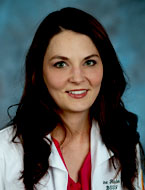Cutaneous Burn Injury Promotes Shifts in the Bacterial Microbiome in Autologous Donor Skin: Implications for Skin Grafting Outcomes Journal Article
Local Library Link: Find It @ Loyola
| Authors: | Plichta, J. K.; Gao, X; Lin, H; Dong, Q; Toh, E; Nelson, D. E.; Gamelli, R. L.; Grice, E. A.; Radek, K. A. |
| Article Title: | Cutaneous Burn Injury Promotes Shifts in the Bacterial Microbiome in Autologous Donor Skin: Implications for Skin Grafting Outcomes |
| Abstract: | INTRODUCTION: The cutaneous microbiome maintains skin barrier function, regulates inflammation, and stimulates wound healing responses. Burn injury promotes an excessive activation of the cutaneous and systemic immune response directed against commensal and invading pathogens. Skin grafting is the primary method of reconstructing full-thickness burns, and wound infection continues to be a significant complication. METHODS: In this study, the cutaneous bacterial microbiome was evaluated and subsequently compared to patient outcomes. Three different full-thickness skin specimens were assessed: 1.)control skin from non-burned subjects; 2.)burn margin from burn patients; and 3.)autologous donor skin from the same cohort of burn patients. RESULTS: We observed that skin bacterial community structure of burn patients was significantly altered compared to control patients. We determined that the unburned autologous donor skin from burn patients exhibits a microbiome similar to that of the burn margin, rather than unburned controls, and that changes in the cutaneous microbiome statistically correlate with several post-burn complications. We established that Corynebacterium positively correlated with burn wound infection, while Staphylococcus and Propionibacterium negatively correlated with burn wound infection. Both Corynebacterium and Enterococcus negatively correlated with the development of sepsis. CONCLUSIONS: This study identifies distinct differences in the cutaneous microbiome between burn subjects and unburned controls, and ascertains that select bacterial taxa significantly correlate with several co-morbid complications of burn injury. These preliminary data suggest that grafting donor skin exhibiting bacterial dysbiosis may augment infection and/or graft failure and sets the foundation for more in-depth and mechanistic analyses in presumably "healthy" donor skin from patients requiring skin grafting procedures. |
| Journal Title: | Shock |
| ISSN: | 1540-0514; 1073-2322 |
| Publisher: | Unknown |
| Journal Place: | United States |
| Date Published: | 2017 |
| Language: | eng |
| DOI/URL: | |
| Notes: | LR: 20170403; JID: 9421564; aheadofprint |




